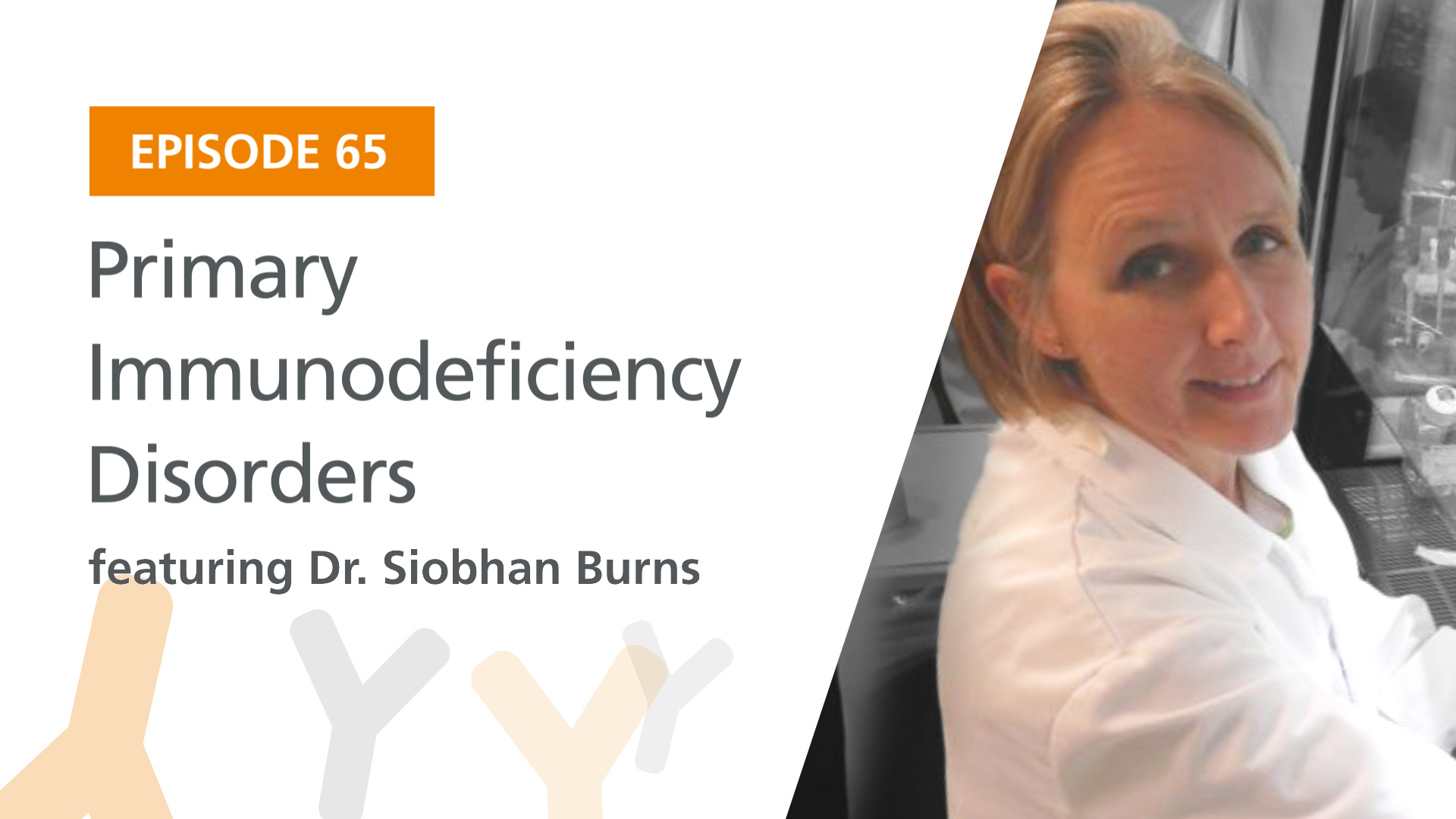
Guest:
Dr. Siobhan Burns is a Professor of Translational Immunology at University College London. Her group studies the underlying molecular and cellular mechanisms that give rise to primary immunodeficiency disorders. She talks about how genetic mutations affect immune function, and what inborn errors of immunity can teach us about general immunology.
Featured Products and Resources:
The Immunology Science Round Up
A Cryptic Antigen in Influenza – Researchers identified a nonclassical MHC epitope that directs the T cell response against influenza.
Drug-Resistant Malaria Parasites – Scientists generated atovaquone-resistant malaria parasites and showed that they fail to transmit by mosquito.
Transplanting Genetically Modified Pig Kidneys into Monkeys – Scientists showed that preclinical studies of renal xenotransplantation could be successfully conducted in nonhuman primates.
Dendritic Cells to Reduce Immunosuppression After Liver Transplant – Liver transplant recipients who receive regulatory dendritic cells may require less immunosuppressive drugs.


